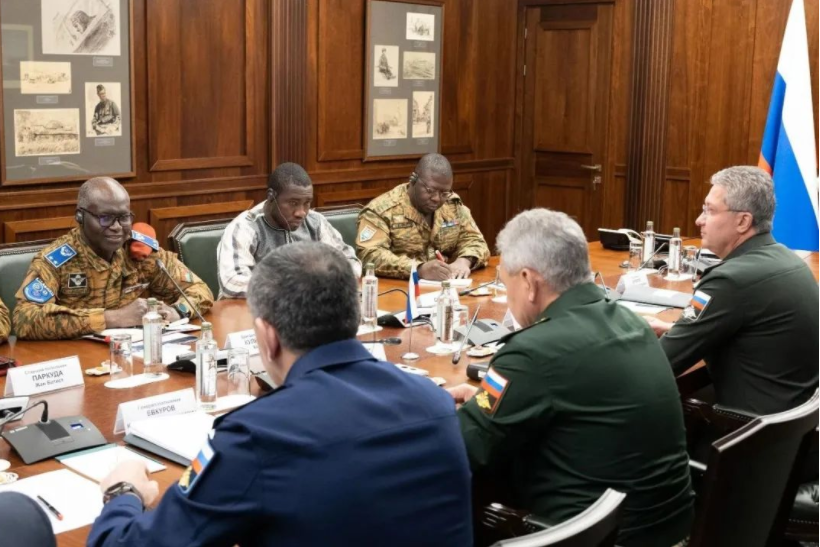
Russian Defense Minister Sergei Shoigu meets with his counterpart from Burkina Faso on November 7, 2023, local time. (File photo from Reference News)
The US Department of Defense (DoD) recently announced to withdraw a majority of its forces from Chad and Niger under the requirements of the transitional governments of these two African countries. According to the plan, the US will pull back around 75 troops of its Army Special Forces from Chad and above 1,000 deployed troops from Niger. Earlier, France has been asked to withdraw its troops from Mali, Burkina Faso, Niger and other countries.
Under the pretext of counter-terrorism and providing security assistance, the US has long deployed troops in Africa's Sahel region to address the threats posed by local extremist groups. The US military has been engaged in anti-terrorist operations in Chad and Niger for over a decade, but is now demanded to withdraw. In this regard, the Chinese military observer Teng Jianqun analyzed that the US presence hasn't delivered any benefits to the local economies and counter-terrorism endeavors; on the contrary, it created a multitude of troubles. Moreover, the US' arrogant attitude and practice of making empty promises have sparked resentment from the transitional governments of countries like Niger and Chad. The two countries' call for US troops' withdrawal is seen as an extension of France's military disengagement from the North African region, indicating the awareness of African nations to assert ownership over their own security and development.
The US DoD said that withdrawing a significant portion of the US forces from Chad and Niger would be a temporary step. According to the Associated Press, the US is seeking to reach an agreement with both governments in a view to maintain certain military presence there. For the US statement, Teng commented that the partial withdrawal is the wishful thinking of the US. Despite their limited numbers, these military personnel are highly significant to the US military and the country, as they play a noticeable role in demonstrating the US presence politically and offering strategic support militarily. Although the US is reluctant to depart, it is the prevailing trend to do so. For the time being, its persistence obviously lacks persuasiveness as France, Italy and Germany had previously been compelled to evacuate their deployed forces from Africa, particularly from North Africa.
In recent times, some African countries including Burkina Faso, Mali and Niger have started to pursue cooperation with Russia. The other day, a military expert group of Russia arrived in Niger to help train local forces in the fight against terrorism.
Teng pointed out that with the removal of the US troops and the entry of Russian military forces, there will be a significant shift in the power dynamics within the Sahel region of Africa. Russia has been keeping a military presence in the region in the form of irregular forces like the Wagner Group (now renamed Africa Corps). Through this approach, Russia has extended its political and security interests to Africa.
Furthermore, African countries have a more favorable impression of Russia compared to Western countries. For example, Russia's food aid endows the people in underprivileged African countries with enhanced prospects of survival. The more flexible policy of Russia towards Africa also presents certain advantages for African nations. Comparatively, African countries exhibit a stronger inclination to accept the existence of Russia rather than Western countries including the US in the locality.
Editor's note: Originally published on military.cnr.cn, this article is translated from Chinese into English and edited by the China Military Online. The information and opinions in this article do not necessarily reflect the views of eng.chinamil.com.cn.













